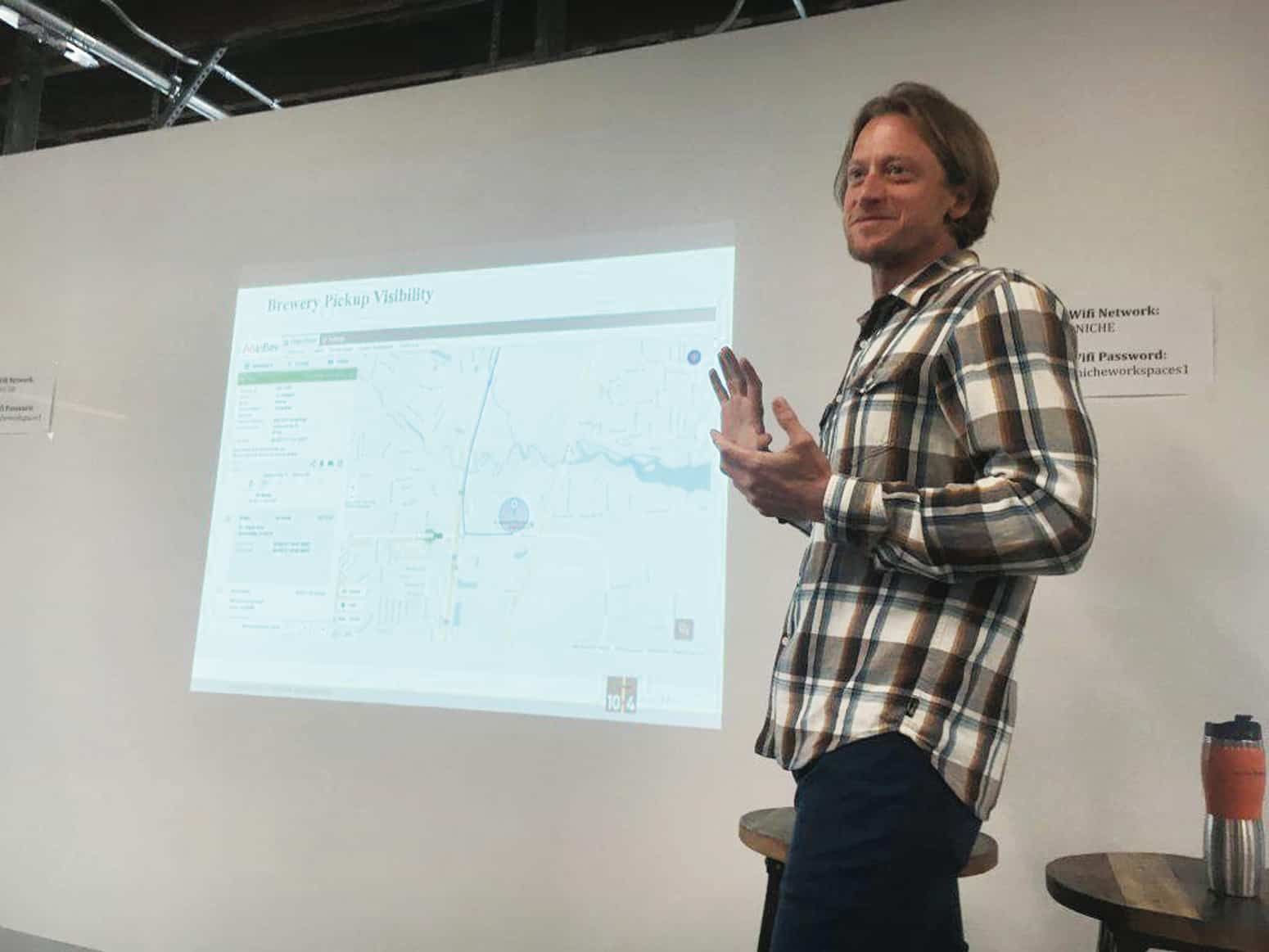Boulder tech firm brings Big Data into the trucking industry

BOULDER — Technology is seeping into and changing how we operate nearly every industry — retail, health care, finance — but there is at least one industry that is still nearly untouched by today’s technology.
Logistics.
The influence of the Internet of Things and big data on supply chain and shipping has been limited, but Boulder-based 10-4 Systems is trying to change that. In their panel “How Beer Gets Shipped” at Boulder Startup Week, 10-4 CEO Travis Rhyan shared how technology could vastly improve the shipping industry, using their customer Anheuser-Busch as an example.
There’s plenty of opportunity in trucking, Rhyan said, as the industry still operates on freight brokers and fax machines. He likened it to using a travel agent when the rest of the world moved past that, past Orbitz and Expedia to Airbnb. Or using checks when everyone else moved beyond that and beyond Paypal to using Venmo for financial transactions.
SPONSORED CONTENT
“In trucking,” he said, “there are so many problems, and we all know what they are. But there is no Venmo for trucking.”
Part of the issue is that most of the technology investment has been in developing applications on how to run things in trucking rather than tackling how information is dispersed.
That’s resulted in an industry where, unless you’re a major firm, like the measly 200 companies that have a fleet of more than 1,000 trucks, you’re using cell-phone triangulation rather than GPS or any real-time data to track shipments. There are about 80,000 trucking companies that use old tech or no technology to track their shipments, trucks and drivers.
There are significant problems with this, Rhyan said. If a customer orders a $50 Lego set, they will know exactly when it will be ordered, sometimes even where it is in the country as it makes its way from manufacturer to distribution center to the consumer. But in most cases, that $50 Lego set is part of $1 million worth of Lego products on a truck and, usually, Lego and the carrier have no idea where on the map that $1 million is.
That exact problem is what 10-4 is trying to solve, by pulling in data from applications to track trucks and shipments in real-time. They’re also bringing in other data, such as what temperature goods are being kept at or where products are coming from.
And it’s how Anheuser-Busch became a customer of 10-4. When the Denver Broncos won the Super Bowl, Peyton Manning said he was going to drink a Bud. That resulted in a surge of sales. But, because they weren’t utilizing big data, wholesalers would have to jump through hoops calling Anheuser-Busch which in turn would have to contact their breweries, who would contact the trucking company, who would contact the driver — to see where their orders were and when they would be delivered. In some cases, the wrong product would be on the truck.
“We’re providing the customer with data and intelligence,” Rhyan said. “We’re finally making visibility in the supply chain, something that is just now hitting this behemoth of an industry.”
BOULDER — Technology is seeping into and changing how we operate nearly every industry — retail, health care, finance — but there is at least one industry that is still nearly untouched by today’s technology.
Logistics.
The influence of the Internet of Things and big data on supply chain and shipping has been limited, but Boulder-based 10-4 Systems is trying to change that. In their panel “How Beer Gets Shipped” at Boulder Startup Week, 10-4 CEO Travis Rhyan shared how technology could vastly improve the shipping industry, using their customer Anheuser-Busch as an example.
There’s…
